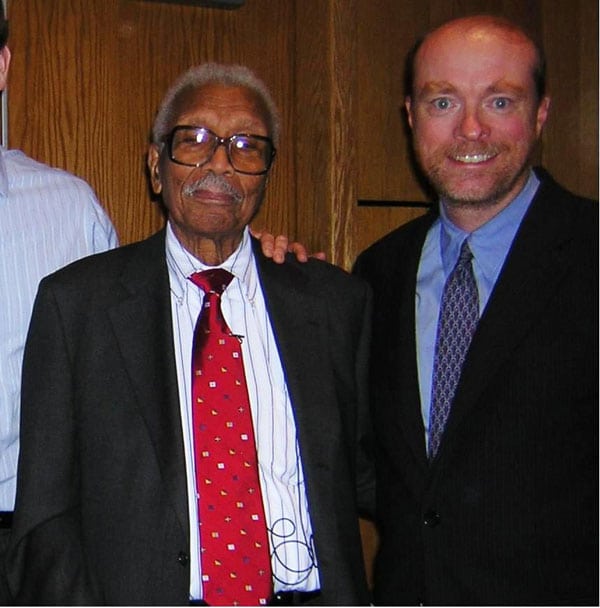
May 24, 2018; Wall Street Journal
Establishing public policies that properly balance donors’ desires for privacy, free speech rights, state and federal authorities’ need to properly oversee nonprofit operations, and the general public’s need for information has not been easy in a time of heightened political activity and sensitivity. At issue is the right of states to require nonprofit organizations to share with them the same information they are now required to provide the federal government. Conflicting federal court rulings have left the question unresolved. Now, members of the US Senate have suggested a way to resolve the issue on the side of donor privacy and “free speech.”
Current federal tax law requires every nonprofit organization that files an annual tax return (Form 990) also provides information about every donor that gave “during the year, contributions totaling $5,000 or more (in money or property).” The IRS is required by law to keep this information confidential. Since the 1950s, state governments have attempted to require nonprofits operating within their borders to share this information, and nonprofit organizations have fought back, claiming that their donors were at risk of harassment and retribution if their support became publicly known.
Those challenging states have come from both poles of the political spectrum. As NPQ recently reported, the NAACP successfully challenged the state of Alabama’s attempt to require it to provide a list of its members in the case of NAACP v. State of Alabama Ex. Rel. Patterson. The group feared that in the hostile racial environment of a Deep South state, publishing names “would reasonably subject them to the threat of violence.” Decades later, the Americans for Prosperity Foundation successfully challenged a California state law because its donor list had leaked and its supporters had been harassed.
Most recently, in a case brought by Citizens United challenging a New York state donor disclosure law, a federal court came to the opposite conclusion. As reported by the New York Post, Judge Rosemary Pooler said that “an individual who seeks to advance a cause might reasonably hesitate knowing that an officer of the state will see that they have done so….But totalitarian tendencies do not lurk behind every instance of a state’s collection of information about those within its jurisdiction.”
Recently, as the Senate Appropriations Committee was considering the IRS’s 2019 budget request, a proposal that would resolve the issue on the side of privacy was floated. According to the Wall Street Journal, “Montana Republican Steve Daines asked Acting IRS Commissioner David Kautter whether the agency is considering the necessity of IRS 990 Schedule B.” The Commissioner’s response indicates a proposal to eliminate the current donor reporting requirements may be soon on the table: “I think for many organizations there frankly isn’t a requirement. We don’t need that information to administer the tax laws in a fair and equitable way.”
Sign up for our free newsletters
Subscribe to NPQ's newsletters to have our top stories delivered directly to your inbox.
By signing up, you agree to our privacy policy and terms of use, and to receive messages from NPQ and our partners.
Philanthropy Roundtable spelled out the case for openness in the words of David Callahan, editor of Inside Philanthropy.
When wealthy donors speak loudly in the public square, using nonprofit proxies, citizens deserve to know who they are, along with what motives they may have—and all the more so when donors are using tax-subsidized dollars. There is a compelling public interest at stake here, one that trumps the ideal of donor privacy.
[…]
As for disclosure-related fears of donors, I don’t see a clear solution here, except to ask them to live with it on those occasions that arise…and if the donors can’t, they can choose not to give. A little less philanthropic money flowing into today’s polarized policy and advocacy battles probably wouldn’t be a bad thing.”
For free speech advocates who fear the danger of backlash, donor anonymity is critical. The NAACP, in an amicus brief in support of overturning the California disclosure legislation, argued that, “In an increasingly polarized country, where threats and harassment over the Internet and social media have become commonplace, speaking out on contentious issues creates a very real risk of harassment and intimidation by private citizens and by the government itself.…Thus, now, as much as any time in our nation’s history, it is necessary for individuals to be able to express and promote their viewpoints through associational affiliations without personally exposing themselves to a legal, personal, or political firestorm.”
The debate continues—in court, in Congress, and in state houses. Does maintaining donor anonymity protect free speech, especially for those voicing controversial opinions in hostile environments? Or does it allow nonprofits to improperly advocate and enter the world of electoral politics? Where do you come down on this ongoing saga?—Martin Levine













